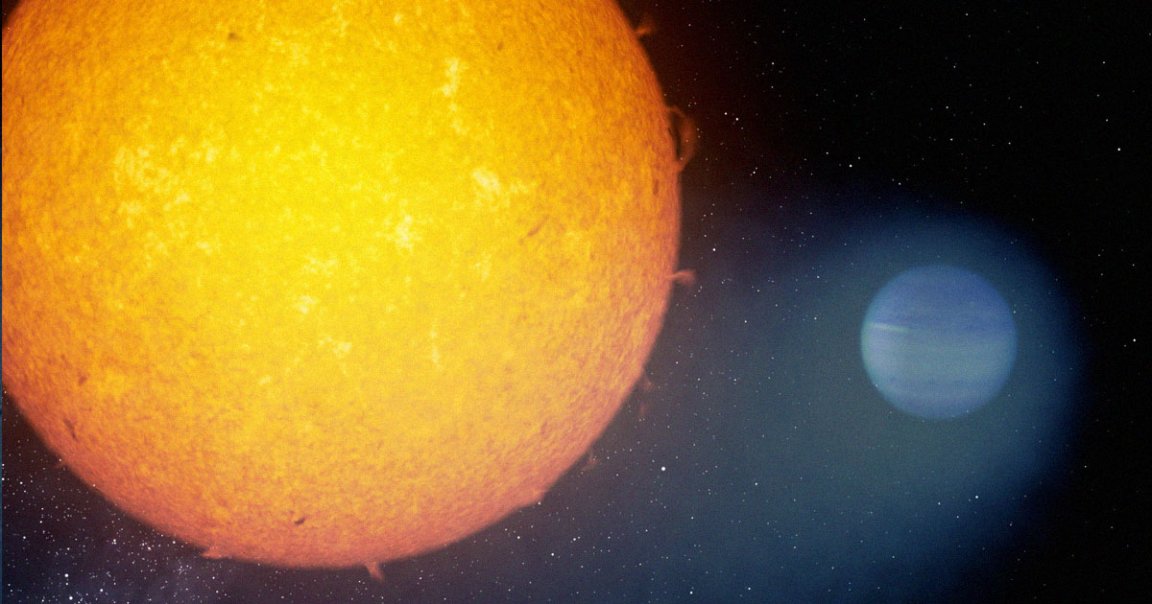
Tail End
Astronomers have spotted a mysterious exoplanet orbiting a star some 160 light-years away — which, strikingly, has a 350,000-mile-long tail made of helium gas.
The planet, dubbed WASP-69b, is quite a bit less dense than Jupiter and whips around its star every 3.9 Earth days. Thanks to its close proximity, its surface heats up to a blistering 17,500 degrees Fahrenheit, which is how it and planets like it got their nickname “Hot Jupiter.”
And now its unusual tail, which stretches one and a half times the distance between the Earth and the Moon, has caught the attention of astronomers.
“Most Hot Jupiters are losing mass in this way, but not all of them have tails,” University of California astrophysics doctoral candidate Dakotah Tyler, coauthor of a new paper published in The Astrophysical Journal, told the New York Times. “The only way to get the tail is if you have an excessive stellar wind that reshapes and sculpts it, basically like a comet,” he added, referring to charged particles emanating from the planet’s star.
Mass Effect
Tyler and his colleagues used observations from the Keck Observatory in Hawaii to confirm previous suspicions that WASP-69B might have a helium tail.
The astronomers were also trying to get behind the suspicious absence of Neptune-size objects — Jupiter’s diameter is almost three times that of Neptune — orbiting their stars at similarly tight orbits. One possibility is that these much smaller objects can’t survive being pelleted by radiation from their parent star.
Hot Jupiters, however, are seemingly big enough to withstand this stellar wind and can hold on to their atmospheres much longer compared to Neptune-sized objects.
According to the team’s calculations, WASP-69b could be losing 200,000 tons of mass per second. While that may sound like a lot, it should still be able to maintain its atmosphere throughout the lifetime of its parent star.
In short, while the puffy, boiling planet isn’t exactly going to be your next holiday destination, it could give astronomers important insights into the evolution of exoplanets.
“This is an extreme environment,” said Tyler at a press conference, as quoted by Business Insider. “I would suggest that you do not consider retiring on this planet.”
More on Hot Jupiters: NASA Spacecraft Zooms Close to Jupiter’s Brutal Moon, Snaps Amazing Photos